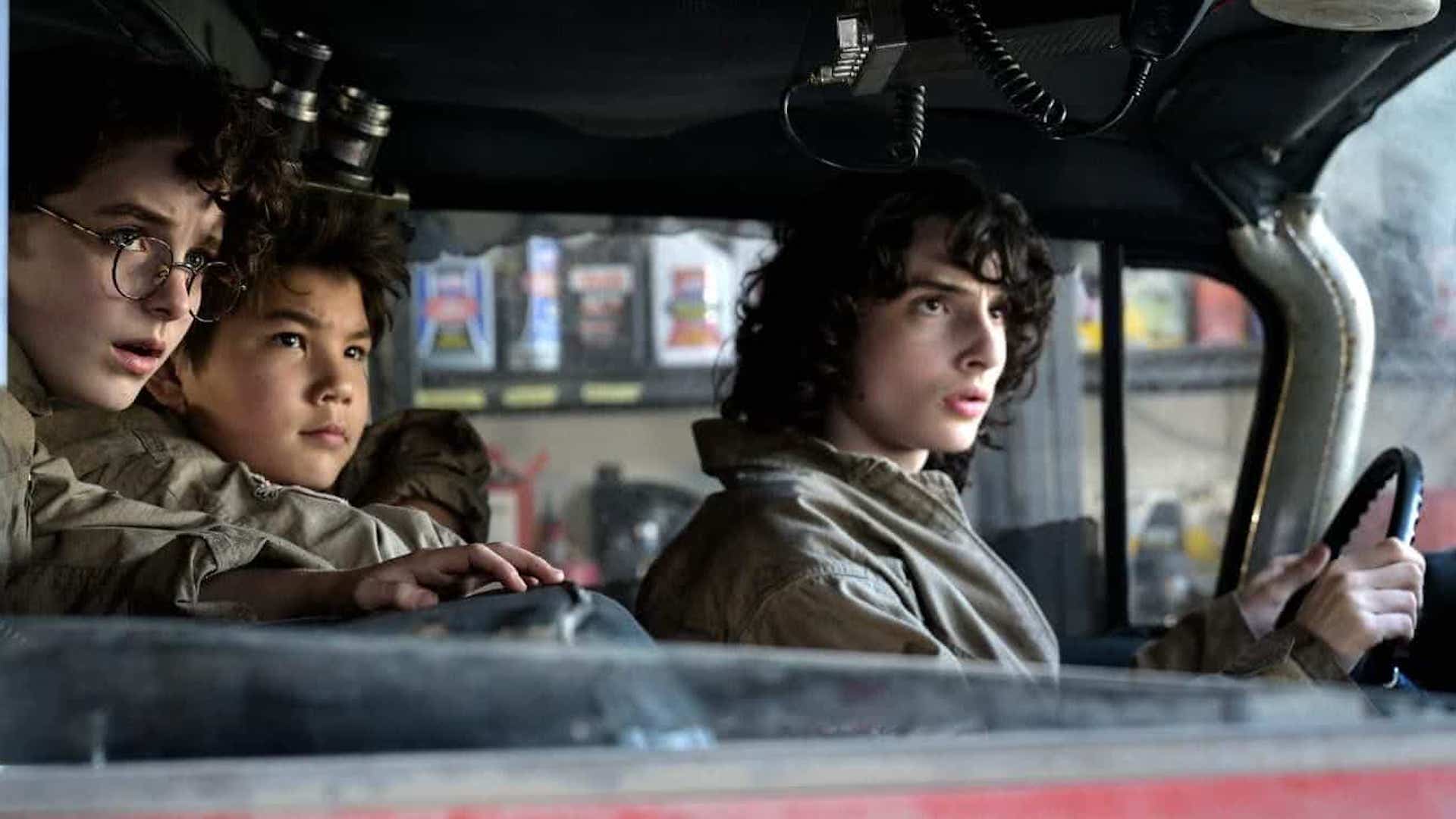GamesRadar+ Verdict
Warm, witty and full of wonder, Afterlife reanimates a franchise without spitting on its grave.
Why you can trust GamesRadar+
The legacy of Ivan Reitman’s phantom-finding franchise, following a group of NY scientists stopping a surplus of spooks, has had its share of bumps (in the night) – from the diminishing returns of the 1989 sequel to the underperforming gender-switch reboot of 2016.
So it would be fair to approach Ghostbusters: Afterlife with the same caution you might employ entering the Sedgewick Hotel’s 12th floor. But breathe a sigh of relief: co-writer/director Jason Reitman (son of Ivan) hasn’t crossed the streams and invoke a cinematic total protonic reversal (otherwise known as shitting on the original). Rather, this reverential reinvention hits the sweet spot of successfully intertwining origin lore with modernity. It even manages to address some of the problematic sexism of the OG ’busters without relinquishing the spirit of the enterprise.
So where do we find team Ghostbusters now? Egon (Harold Ramis) has popped his clogs after years of living hermit-like in small-town Oklahoma, undertaking covert experiments at his ramshackle farm (seen in a truly spine-tingling pre-title sequence). The rest of the gang has been largely forgotten by the general public, which is why Egon’s grown-up daughter Callie (Carrie Coon) is unimpressed that she needs to sort out the affairs of her skip-the-nest Pa after being informed of his death.
Her bickering kids, teen Trevor (Finn Wolfhard) and 12-year-old science nerd Phoebe (Mckenna Grace), are equally nonplussed to relocate to Grandpa’s house in Summerville, a town without a bar of phone signal and a preponderance of seismic tremors, despite not being on a faultline. It’s little wonder that bright Phoebe is bored by summer classes led by manchild Mr Grooberson (Paul Rudd), whose idea of a lesson is popping Cujo in the VCR (one of many ’80s hat-tips). Instead, she starts exploring spectral activity with new pal Podcast (Logan Kim) and some very familiar equipment. Meanwhile, Trevor’s not going to ignore the lure of that ‘shitbox’ 1959 Cadillac languishing in the barn...
So far, so familiar as a next-gen re-tool. But Afterlife succeeds precisely by not messing with the formula. Leaning hard into an Amblin-esque vibe, this is a movie that feels like a product of the ’80s in a good way. Families talk over each other naturalistically like the dinner-table conversations of E.T.; there are animatronics instead of CG; a town diner seems like a throwback to another era; kids are taken seriously and lensed from their perspective; and a Goonies sense of magic is conjured when there’s something strange in the neighborhood.
Part of that love of yesteryear is personified by Grooberson, a man old enough to be a Ghostbusters fan. In Rudd’s capable comedic hands, he’s a foil providing much of the wonder in the face of 2021 cynicism. “Science is punk rock,” he enthuses before blowing up a school bus and facilitating the kids’ adventures, while his third-act character switch is a grin-plastering hoot.
Coon too excels, as a recognisable, harassed parent in the mould of Poltergeist’s JoBeth Williams, while Grace shows the kind of focus-pulling power she demonstrated in The Handmaid’s Tale. (By contrast, Wolfhard is short-changed by an underdeveloped character, his casting seeming as much about netting that Stranger Things cachet as his ability to inhabit the role.) Along with the ’Busters’ legendary kit, the terror dogs, Stay-Puft, Slimer proxy Muncher (with Josh Gad as this version’s ugly little spud), Janine and more are all lovingly referenced.
And it won’t be a surprise to discover a number of starry cameos eventually materialise. But the how and wherefore are skilfully negotiated, ensuring that their addition to the story brings true emotional heft rather than providing mere lip service. They are very much a side note to the main event, which is a celebration of finding peace – whether that’s in owning your intelligence, forgiving a family member or friend, finding eternal rest or accepting your destiny. And y’know, if you need to do that by zapping Main Street with an unlicensed nuclear accelerator, while strapped to a gunner seat, then so be it.
While a gently chiding #MeToo post-credit sequence and open-door policy for further sequels might annoy purists, it would seem churlish to admonish such a warm-hearted film. Afterlife is, like the recent Free Guy, one of those rare movies that’s a genuine four-quadrant treat. Smart and knowing without being snide, it’s a film that will entertain adults as much as kids, fans and much as newbies; and it operates from a place of nostalgia as well as future-facing optimism. Dedicated to the late Ramis (and there’s magic in that, too), it’s a movie that lives up to the promise of its provenance. Bustin’, it turns out, does make you feel good.
More info
| Genre | Horror |
Jane Crowther is a contributing editor to Total Film magazine, having formerly been the longtime Editor, as well as serving as the Editor-in-Chief of the Film Group here at Future Plc, which covers Total Film, SFX, and numerous TV and women's interest brands. Jane is also the vice-chair of The Critics' Circle and a BAFTA member. You'll find Jane on GamesRadar+ exploring the biggest movies in the world and living up to her reputation as one of the most authoritative voices on film in the industry.



